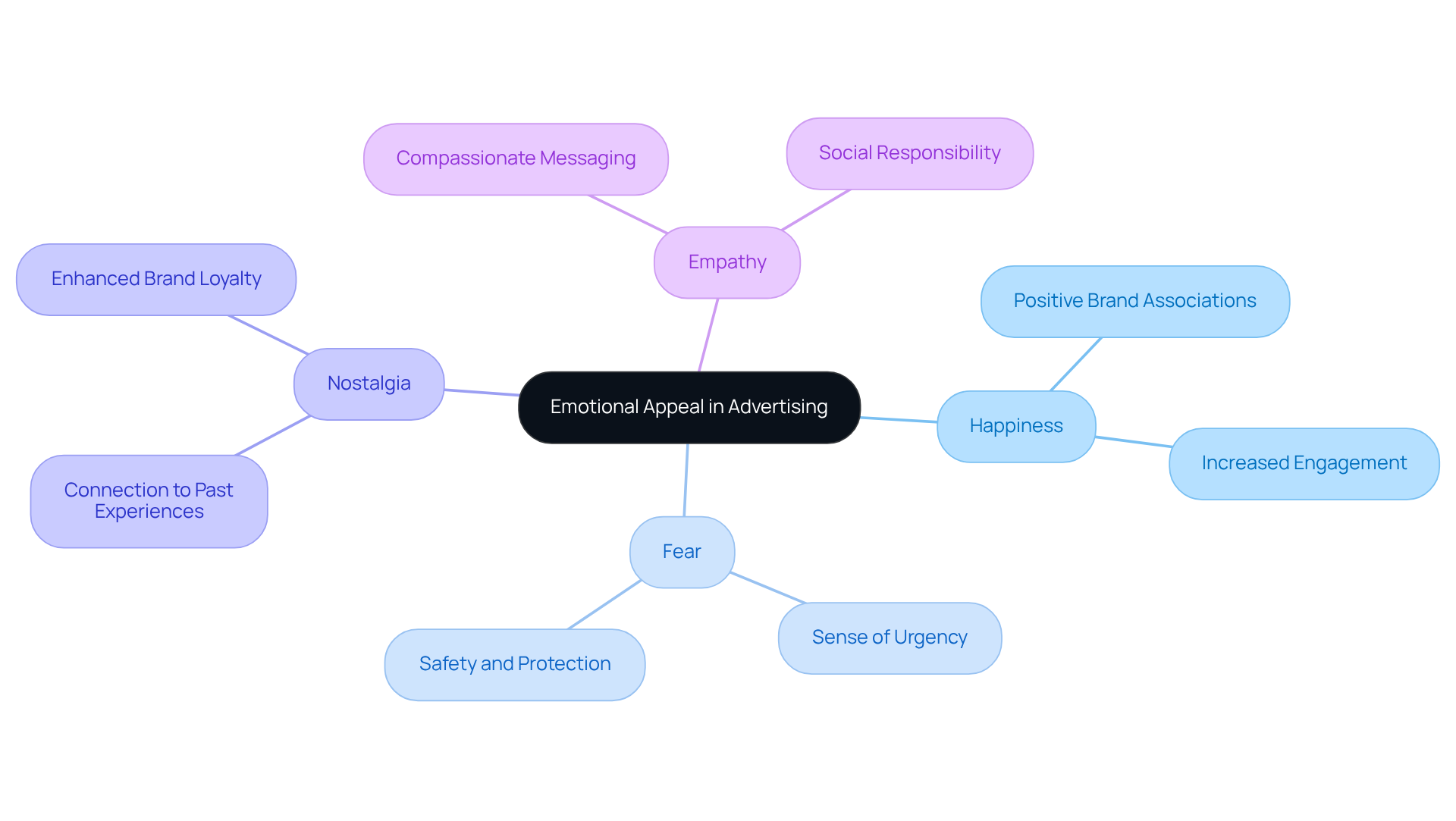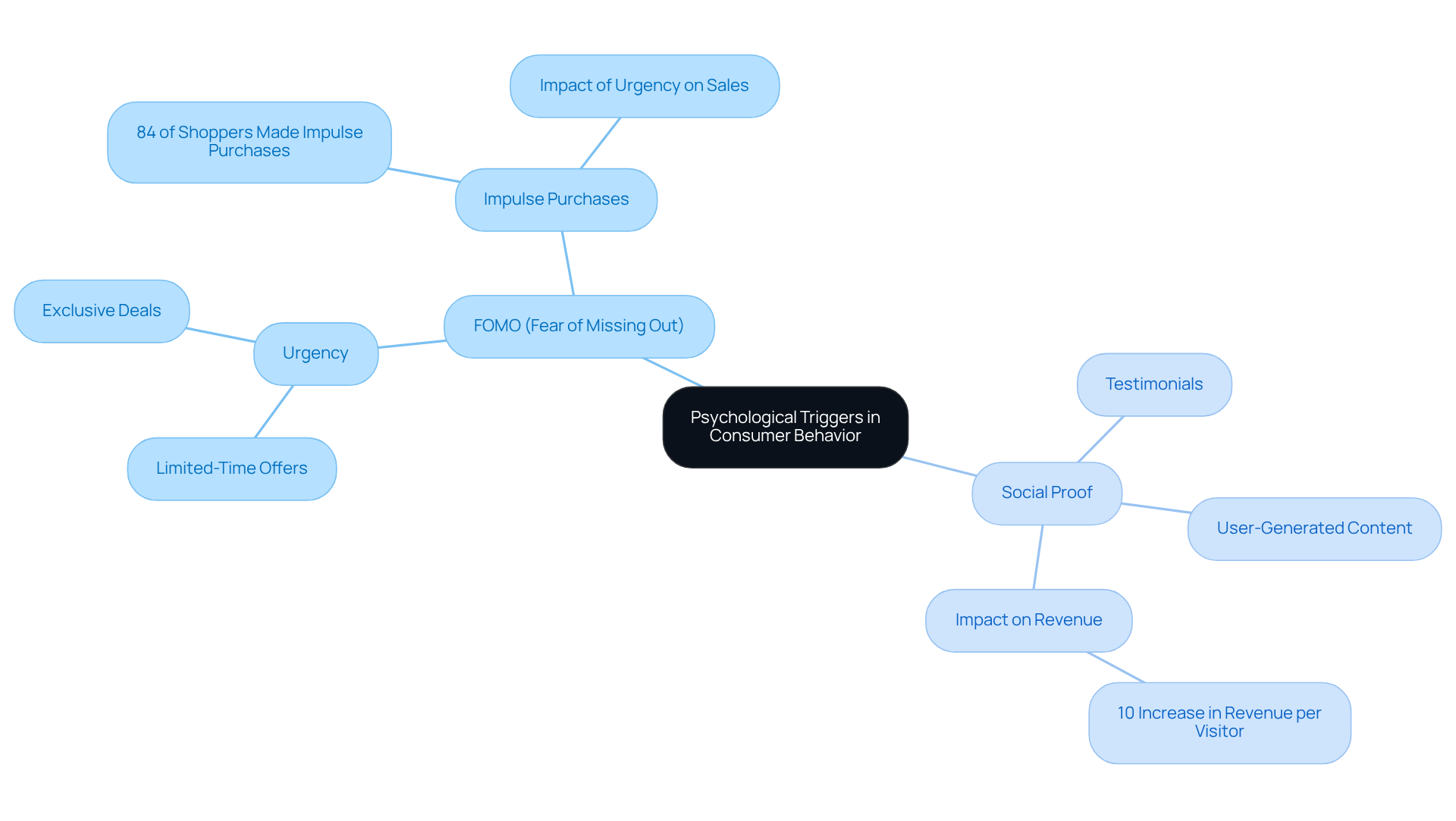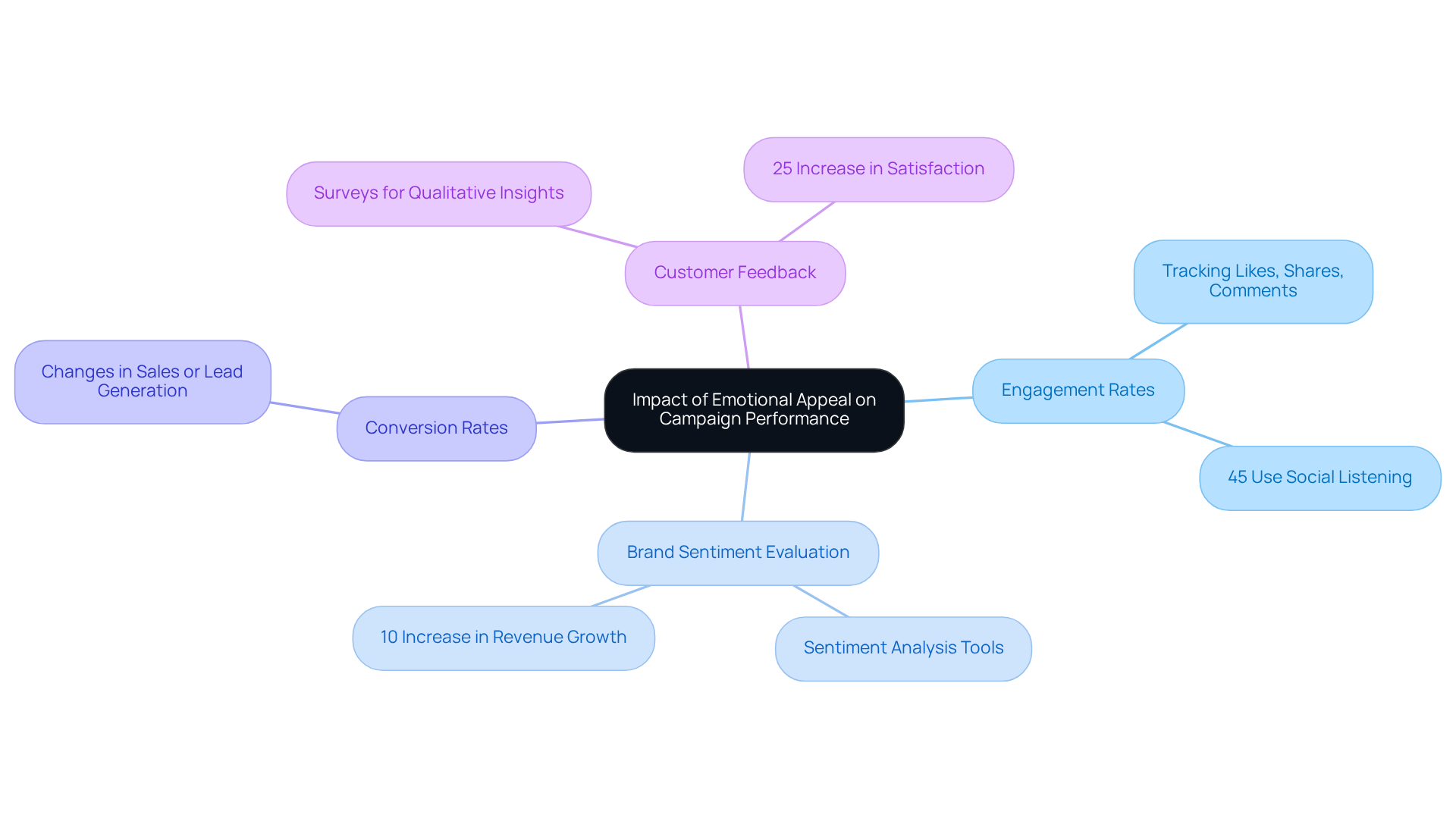
Overview
Mastering emotional appeal in advertising is essential for the success of direct-to-consumer (DTC) brands. By effectively leveraging emotions such as happiness, fear, and nostalgia, alongside psychological triggers like FOMO and social proof, marketers can craft compelling campaigns that significantly enhance consumer engagement and loyalty. This strategic approach not only fosters deeper connections with consumers but also leads to increased conversion rates and brand profitability.
Incorporating emotional elements into advertising is not merely an option; it is a necessity for brands aiming to thrive in a competitive landscape. The ability to evoke strong feelings can transform a standard marketing message into an irresistible call to action. As marketers harness these emotional triggers, they create a narrative that resonates with consumers, prompting them to take the desired action.
Ultimately, the integration of emotional appeal in advertising serves as a powerful tool for DTC brands. By understanding and applying these principles, marketers can achieve remarkable results, driving both engagement and profitability in their campaigns.
Introduction
The power of emotional appeal in advertising is a critical tool for brands seeking to establish profound connections with consumers. By engaging emotions such as happiness, fear, and nostalgia, marketers craft compelling narratives that not only capture attention but also influence purchasing decisions. As the landscape of direct-to-consumer marketing evolves, brands must effectively harness these emotional triggers to differentiate themselves in an increasingly saturated market. This article explores strategies that can elevate advertising efforts, examining the intricate relationship between emotions and consumer behavior to unlock opportunities for enhanced engagement and loyalty.
Define Emotional Appeal in Advertising
The use of advertising is a in individuals, significantly influencing their purchasing decisions. This approach goes beyond mere product features and benefits by leveraging [advertising emotional appeal](https://indeed.com/career-advice/career-development/emotional-appeal-advertising) to such as:
- Happiness
- Fear
- Nostalgia
- Empathy
By establishing a connection that resonates on a personal level, companies can and enhance engagement. For instance, campaigns that inspire nostalgia often remind individuals of favorable past experiences, making them more inclined to interact with the brand. Understanding this concept is vital for marketers seeking to that utilize advertising emotional appeal to stand out in a crowded marketplace.

Explore Psychological Triggers in Consumer Behavior
serve as potent stimuli that elicit emotional responses, profoundly influencing purchasing behavior. Among these, the and emerge as particularly compelling forces. FOMO instills a sense of urgency, driving consumers to act promptly to avoid missing valuable opportunities. Notably, 84% of shoppers have reported making impulse purchases, with FOMO acting as a pivotal motivator in these decisions. This , such as or exclusive deals, which encourage immediate action. 's ; for instance, by gamifying the progress bar for free shipping thresholds and introducing free gifts over a certain cart size, they successfully increased by 35% for an apparel company, showcasing how urgency propels sales. Furthermore, displaying original prices alongside discounts cultivates a perception of value, further intensifying the urgency fostered by FOMO.
Social proof, encompassing testimonials, user-generated content, and endorsements, bolsters company credibility and . Research indicates that consumers are more inclined to engage with companies that showcase favorable experiences from others, as 54% of U.S. shoppers have spent $100 or more on spontaneous purchases, often influenced by the actions of their peers. Parah Group's strategies, such as optimizing product pricing and prominently featuring social proof on the homepage, resulted in a 10% increase in revenue per visitor for their clients. By effectively harnessing these psychological triggers, marketers can craft persuasive messages that leverage advertising emotional appeal to resonate deeply with their audience, leading to heightened conversion rates and enhanced customer loyalty.
Expert insights further underscore the significance of these strategies. Dr. Reimann emphasizes that urgency is a critical driver of consumer action, while Khalid Saleh highlights the role of psychological sales triggers in persuading potential customers. Importantly, FOMO exerts a considerable influence on impulse buying and acts as a mediator in the relationship with scarcity perception, particularly through advertising emotional appeal. By comprehending and implementing advertising emotional appeals, DTC brands can markedly enhance their marketing effectiveness and overall profitability.

Implement Strategies for Effective Emotional Messaging
To craft impactful and heartfelt messaging, marketers must embrace several key strategies that highlight .
- Storytelling is paramount; developing narratives that resonate with the audience's experiences fosters emotional engagement. For instance, Nike's 'Just Do It' initiative motivates consumers by focusing on personal challenges, effectively linking with their aspirations. Additionally, Apple's 'Think Different' campaign exemplifies how storytelling can define and communicate a brand's identity.
- are equally crucial; selecting imagery and colors that evoke the desired reaction is essential. Warm colors, for example, can elicit feelings of happiness and comfort, while blue often conveys , as evidenced in healthcare branding. Notably, visuals generate 650% greater engagement than text-only posts, underscoring the importance of visual components in message conveyance.
- Authenticity is another vital strategy; ensuring the emotional message aligns with the organization's core values and mission is essential for building customer trust. Johnson & Johnson's transparent communication during the 1982 Tylenol crisis illustrates how genuineness can restore faith in a brand, effectively rebuilding trust with consumers.
- Personalization further enhances messaging; tailoring messages to resonate with specific audience segments increases relevance and connection. Spotify's 'Wrapped' initiative personalizes user experiences by summarizing individual listening habits, making the narrative more engaging. Personalized storytelling not only enhances user engagement but also fosters a deeper connection with the audience.
By employing these tactics, brands can create compelling advertisements that leverage advertising emotional appeal to capture attention and cultivate lasting connections with consumers. Marketers must also remain vigilant about potential pitfalls, such as the risk of cognitive dissonance from incongruent colors, to avoid misapplying these practices.

Measure the Impact of Emotional Appeal on Campaign Performance
To effectively gauge the influence of sentiment appeal on campaign performance, marketers must employ a combination of qualitative and quantitative metrics. Key performance indicators (KPIs) are essential in this assessment:
- : Tracking likes, shares, and comments on social media platforms is crucial for evaluating content impact. Notably, 45% of marketers leverage to monitor product mentions in relation to competitors, underscoring the importance of engagement metrics.
- Brand Sentiment Evaluation: Utilizing allows companies to measure consumer perceptions before and after significant initiatives, revealing shifts in consumer attitudes. For instance, firms that actively track for trends can achieve a 10% increase in revenue growth (Locobuzz, 2024).
- : Observing changes in sales or lead generation directly linked to provides tangible evidence of effectiveness.
- : Conducting surveys yields qualitative insights into consumer reactions to emotionally resonant messaging, helping companies understand the sentimental impact of their promotions. Moreover, organizations that address witness a 25% increase in customer satisfaction.
By systematically measuring these metrics, brands can refine their , leading to enhanced overall campaign effectiveness and improved , which can increase by up to 20% through targeted social media campaigns informed by customer insights.

Conclusion
Emotional appeal in advertising stands as a pivotal strategy that can markedly amplify direct-to-consumer (DTC) marketing success. By forging a profound emotional connection with consumers, brands can cultivate loyalty and engagement, transforming casual buyers into dedicated customers. This approach transcends the conventional emphasis on product features, empowering marketers to craft messages that resonate with their audience's emotions and experiences.
Key strategies for harnessing emotional appeal have been underscored, including:
- The significance of storytelling
- Visual elements
- Authenticity
- Personalization
These techniques not only capture attention but also foster meaningful connections with consumers. Moreover, the influence of psychological triggers, such as FOMO and social proof, emerges as powerful motivators that can propel purchasing behavior and enhance the effectiveness of campaigns.
Mastering emotional appeal in advertising transcends the mere crafting of compelling messages; it necessitates a deep understanding of the emotional landscape of consumers and an effective response to it. Marketers are urged to implement these strategies and rigorously assess their impact, ensuring ongoing enhancement of their efforts. By prioritizing emotional connections, brands can achieve not only improved sales performance but also the establishment of enduring relationships that withstand the test of time.
Frequently Asked Questions
What is emotional appeal in advertising?
Emotional appeal in advertising is a strategy that evokes specific feelings in individuals, significantly influencing their purchasing decisions by connecting on a personal level.
What emotions are commonly used in emotional appeal advertising?
Common emotions used in emotional appeal advertising include happiness, fear, nostalgia, and empathy.
How does emotional appeal influence consumer behavior?
By tapping into emotions, emotional appeal can cultivate brand loyalty and enhance engagement, making consumers more inclined to interact with the brand.
Why is nostalgia an effective emotional appeal in advertising?
Nostalgia is effective because it reminds individuals of favorable past experiences, which can positively influence their perception of the brand and their purchasing decisions.
What should marketers understand about emotional appeal?
Marketers should understand that utilizing emotional appeal is vital for crafting compelling messages that help their brand stand out in a crowded marketplace.
FAQs











